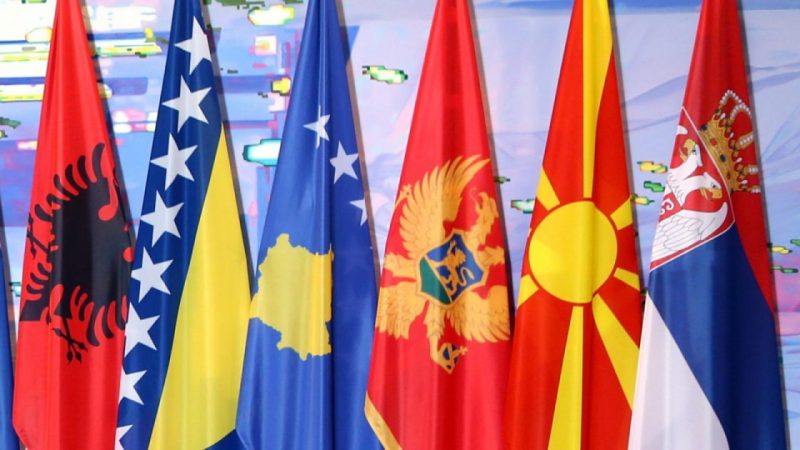

The latest Berlin process summit yielded three agreements facilitating the flow of people in the Western Balkans, which took the six governments two long years to negotiate. While the German hosts of the gathering commend this achievement, one may wonder: can regional cooperation in the Western Balkans go beyond technical issues? Could the Berlin process be the tool to ignite collaboration that requires political audacity?
Since its inception in 2014, the goals of the Process have included “substantial progress” in regional economic cooperation, in laying the grounds for sustainable development, in regional reconciliation, and in resolution of outstanding bilateral and internal issues. Over the years the governments of the countries hosting the annual summits have been adding topics according to their own preferences, but without coordinating and monitoring mechanisms, the fate of many agreements remains unclear. What is known is that tangible results of the Process mostly pertain to economic and infrastructure development, while outcomes related to reconciliation and the solving of lingering bilateral issues remain modest.[1]
Common market notwithstanding, the best part of the regionally-shared problems brought up during the Berlin process requires national-level solutions, and the best the Process can do is have the countries commit to producing them. While the Process did touch upon matters outside its original scope that require multilateral action, such as organized crime, three challenges remain almost unaddressed that call for a narrower, region-specific approach: dealing with the common past, the recent surge in disinformation proliferation and the stalled process of EU enlargement. As proposed by the Civil Society and Think Tank Forum of the Berlin Process, through the Process various aspects of transitional justice could be served, from approximation of history curricula to the listing of war victims. The regional spill-over of disinformation and hate speech could be tackled, too. Finally, the governments could agree to take joint actions, such as in the area of advocacy, in order to speed up the EU accession process.
If there ever was a vehicle for cooperation among the WB6 that could go beyond technical matters, the Berlin Process is one. First, because it has become an informal institution of regional cooperation, with “standard operating procedures” in place, eight years into its existence.[2] Second, unlike the existing intergovernmental institutions, it gathers high-level decision-makers from the region, EU institutions and the EU Member States in regular intervals and puts them in a media spotlight, thus encouraging acts of leadership on all sides. Third, unlike similar informal platforms that gather the same participants, the Berlin Process is the only one dealing exclusively with the Western Balkans, giving agency to WB6 government representatives in regional issues.
Although the Process is externally driven, it is hard to imagine that hosts of the summits would be opposed to including potential initiatives from the regional governments on the agenda, in the fields of reconciliation, countering disinformation and advocacy for faster EU integration. But it is also hard to imagine the current incumbents from across the WB6 acting as “region-builders” and pushing for joint regional action on matters that could stir debate at home.[3]
As parties to the Process, the involved EU governments as well as the European Commission could use their leverage and encourage the WB6 governments to take regional cooperation up a notch, moving it beyond technical matters. Even small progress in this direction could give the Berlin Process a fresh political edge, revive the waning enthusiasm of the region’s governments, media and civil society, and inspire citizens to think of the Western Balkans as a whole.
[1] https://www.berlinprocess.de/
[2] Lowndes, V. and Roberts, M., (2013), Why institutions matter – The New Institutionalism in Political Science, Political Analysis, Palgrave McMillan
[3] Neumann, I. B. (1999).Uses of the other:" the East" in European identity formation(Vol. 9). U of Minnesota Press